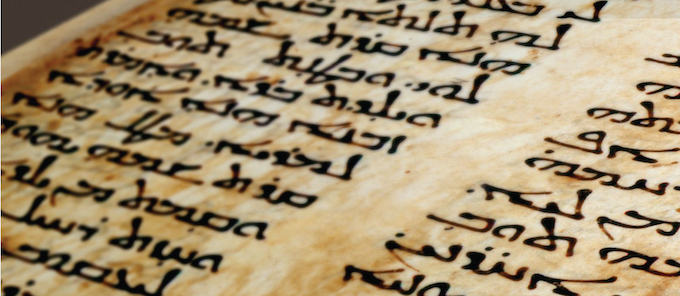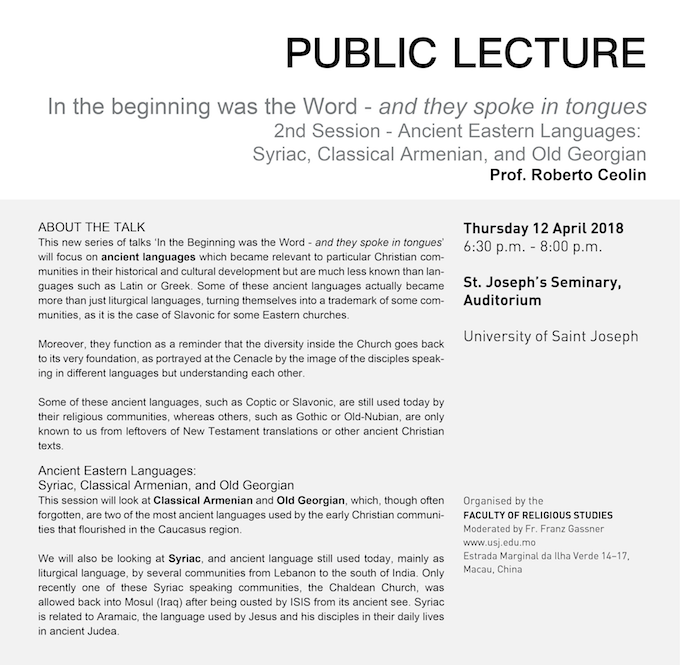Public Lecture: In the beginning was the Word – and they spoke in tongues: 2nd Session – Ancient Eastern Languages: Syriac, Classical Armenian, and Old Georgian

Public Lecture: In the beginning was the Word - and they spoke in tongues: 2nd Session - Ancient Eastern Languages: Syriac, Classical Armenian, and Old Georgian
12
Apr
Public Lecture: In the beginning was the Word – and they spoke in tongues: 2nd Session – Ancient Eastern Languages: Syriac, Classical Armenian, and Old Georgian by FRS on 12th April 2018

ABOUT THE TALK
This new series of talks ‘In the Beginning was the Word – and they spoke in tongues’ will focus on ancient languages which became relevant to particular Christian communities in their historical and cultural development but are much less known than languages such as Latin or Greek. Some of these ancient languages actually became more than just liturgical languages, turning themselves into a trademark of some communities, as it is the case of Slavonic for some Eastern churches.
Moreover, they function as a reminder that the diversity inside the Church goes back to its very foundation, as portrayed at the Cenacle by the image of the disciples speaking in different languages but understanding each other.
Some of these ancient languages, such as Coptic or Slavonic, are still used today by their religious communities, whereas others, such as Gothic or Old-Nubian, are only known to us from leftovers of New Testament translations or other ancient Christian texts.
Ancient Eastern Languages: Syriac, Classical Armenian, and Old Georgian
This session will look at Classical Armenian and Old Georgian, which, though often forgotten, are two of the most ancient languages used by the early Christian communities that flourished in the Caucasus region.
We will also be looking at Syriac, and ancient language still used today, mainly as liturgical language, by several communities from Lebanon to the south of India. Only recently one of these Syriac speaking communities, the Chaldean Church, was allowed back into Mosul (Iraq) after being ousted by ISIS from its ancient see. Syriac is related to Aramaic, the language used by Jesus and his disciples in their daily lives in ancient Judea.









